Leaders from across the coffee industry gathered at the Langham Hotel in Central London to discuss the theme: How scalable is excellence?
Promoting employee skills, harnessing technology and fostering customer experience were all themes high on the agenda at this year's Allegra UK Coffee Leader Summit.
Reflecting a buoyant tone, delegates noted the importance of industry unity. There were calls for businesses to dig deep in tackling shared issues such as waste, inclusivity and sustainability and much agreement that the coffee community should move forward with a single voice.
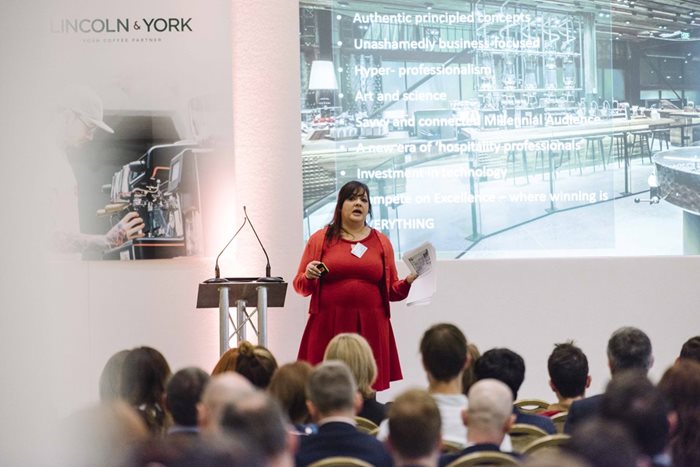
Anya Marco
Executive Director, World Coffee Portal
Opening the summit, World Coffee Portal Executive Director, Anya Marco, celebrated the dynamism she encountered working in the industry every day. Praising the hard work of delegates, she said independents and branded chains alike had succeeded in driving enthusiasm among consumers and making careers in coffee more attractive than ever.
Delivering excellence at scale is no easy task, Marco acknowledged, with burgeoning ‘5th Wave’ operators facing the combined challenges of squeezed consumer spend and sustained economic uncertainty. Moving forward together was therefore essential, she said, urging delegates to unite in harnessing the great opportunities that scaling excellence presents.
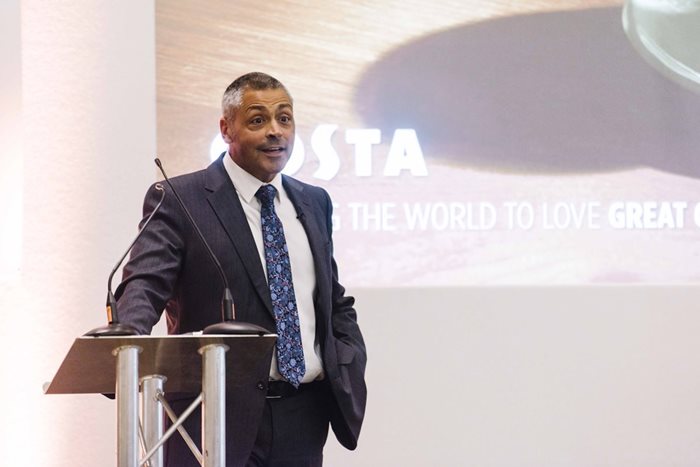
Jason Cotta
Managing Director, Costa UK & Ireland
Recalling three turbulent years that delivered Brexit, sterling devaluation and wage stagnation, Costa’s Jason Cotta said staff were still Costa’s biggest asset. The chain’s dedication to excellence hinged on the contribution and wellbeing of every single employee, he said. The firm’s initiatives across gender, sexual orientation and social backgrounds were intrinsic to Costa's dedication to inclusivity, he added.
"There are things that affect all of us, so we’d be far better speaking with a single voice"
Cotta said Costa had defied critics who said big brands could not offer quality at scale. Noting his firm had been roasting and blending for more than 40 years, he said the global chain was ahead of the curve when it came to the minimum wage, tackling waste and promoting healthy lifestyles.
Echoing Marco’s sentiment, Cotta called on the industry to unite to solve shared issues on waste, wages, trade and employment. Only by working together can operators influence government policy, shape the industry’s future and drive sustained prosperity. “There are things that affect all of us, so we’d be far better speaking with a single voice,” he said.
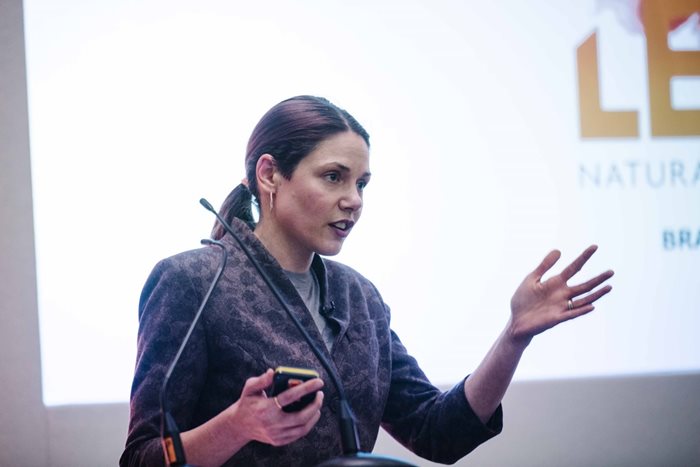
Kirsty Saddler
Brand and Marketing Director, Leon
With 55 million cups consumed in Britain every day, Leon’s Kirsty Saddler heralded the power of coffee to instigate social change. Echoing calls for the industry to work together on key issues, she urged pragmatism on waste, Brexit and sustainability, highlighting that while each was a challenge, each is also an opportunity.
Founded on sustainability principles, Saddler said Leon had moved to compostable paper cups, incentivised reusable containers in-store and even reprocessed spent coffee grounds into fuel pellets. But despite their appeal, Saddler said these measures were not silver bullets and urged more education on supply chains and waste. “It’s not plastic that’s killing the planet, it’s people,” she said.
"If we could incorporate natural capital into the accounting of our economy we would be the very first country to do that, and that’s very exciting"
Emphasising the importance of continually driving excellence in sustainability, Saddler said the coffee industry should lead the way in promoting re-usables and incentivising consumer habit change. "If we could promote the integration of natural capital into the accounting into our economy we would be the very first country to do that, and that’s very exciting,” she said.
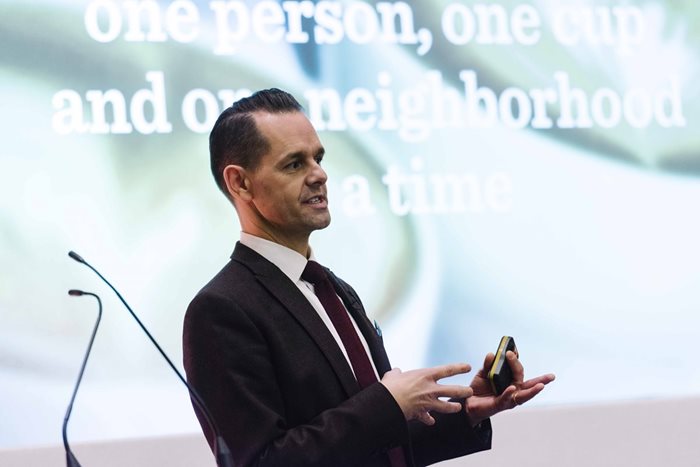
Ruben Arnold
VP Brand Development and Marketing, Starbucks EMEA
Highlighting 20 years of Starbucks in the UK, Ruben Arnold offered a retrospective of Starbuck’s key role in the evolution of the coffee market. Revolving around the theme of coffee as “more than commodity,” Ruben charted the rise of coffee shops in popular culture since the 2nd Wave.
Reiterating the great potential of coffee “to make the world a better place,” Arnold heralded Starbucks' UK arrival as a major catalyst for coffeeshops being viewed as workplaces, social spaces and entrepreneurial hubs.
"We absolutely need to partner up to tackle the issues consumers are looking to the industry to solve"
Experience-led offerings, he explained, are still at the core of the brand’s offering. Today Starbucks has evolved into a “clicks and mortar” business, with connectivity and social media at the heart of customer engagement, Arnold added.
The chain continued to innovate, with customers being introduced to an ever-wider range of origin coffees as consumer tastes become more sophisticated. This was also reflected in the new flagship Reserve Roastery in Milan, scheduled to open later this year.
On Sustainability, Arnold said "we absolutely needs to partner up” to tackle the issues consumers are looking to the industry to solve.
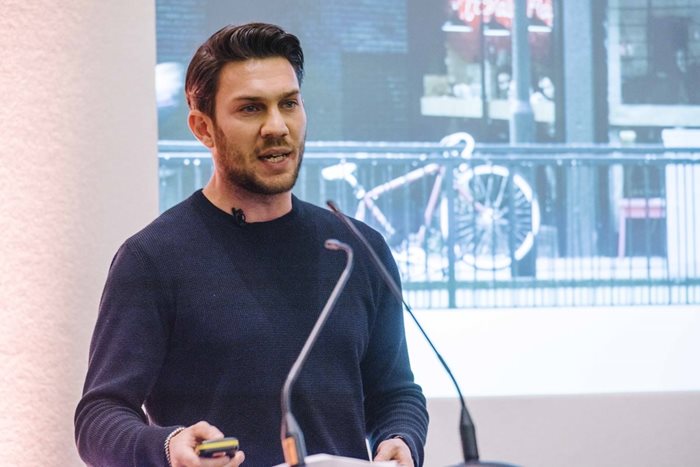
David Abrahamovitch
CEO and Founder, Grind
Delivering an engaging account of Grind’s rapid expansion, David Abrahamovitch said his business had embodied the principles of the ‘5th Wave’ since its inception.
Challenging the attitude among many boutique operators to shun profits and expansion, Abrahamovitch said Grind was “unashamedly business focussed from day one.” Always about building a platform for growth, he detailed how scaling excellence meant recruiting the best expertise, from baristas, to bar staff and chefs.
"We want to take super high-quality coffee to the masses, but we need to do that where the economics are different, and that place is travel"
Highlighting the power of crowd funding in Grind’s rapid London expansion, Abrahamovitch also hailed social media as revolutionary tool for expanding at scale. Adding that Grind had “never spent a penny on marketing,” he said generating enthusiasm among customers for his brand was the single most powerful tool that his business had employed.
Expanding on the opportunities presented by high-footfall travel locations and its new franchise partnership with SSP, Abrahamovitch said retailing premium coffee on the high street was an increasingly challenging proposition. “We want to take super high-quality coffee to the masses, but we need to do that where the economics are different, and that place is travel,” he said.
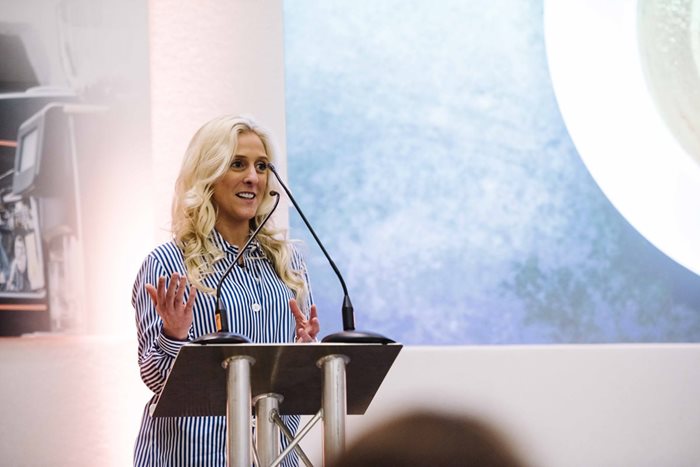
Prue Freeman
Prue Freeman charted Daisy Green's expansion from temporary stall beneath London’s Gherkin building in 2012 to multi-brand chain today.
Recalling the boom in boutique speciality coffee shops five years ago, Green highlighted the importance of diversification for successful expansion. “Doing coffee at a high premium is very difficult to make work” she said.
"Challenging attractive revenue streams should always be at the forefront of decision making"
To this end, diversifying Daisy Green’s food offering and exploiting different day-part revenues had been essential to the brand’s growth. Starting with coffee and cakes, the business targeted afternoon trade with a healthy lunch offering, weekends with brunch and now serves alcohol to drive evening trade.
But sounding a note of caution on this strategy, Freeman said smaller firms should also maintain focus on their core offerings. Challenging attractive revenue streams, assessing the value of new products and questioning the necessity of expensive fit-outs should always be at the forefront of decision making, she urged.
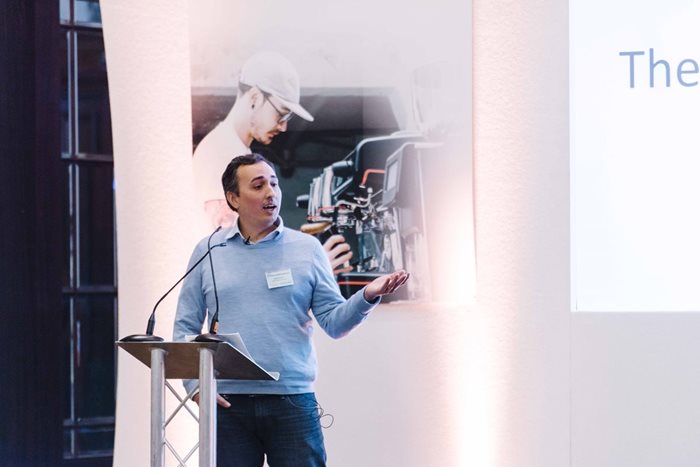
Fabio Ferreira
Fabio Ferreira assessed the challenge of scaling coffee at origin and highlighted the difficulties facing coffee producers in some of the world’s poorest nations. As demand for speciality coffee grows, Ferreira cautioned many farmers in his native Brazil were switching to alternative crops as coffee was no longer viable. This presents a huge challenge for industry growth, especially brands seeking to scale-up premium coffee, he said.
"Coffee sourcing must be accountable, collaborative, environmentally conscious and dedicated to imparting knowledge and skills"
Challenging the industry to broaden the scope of sustainability, Ferreira said coffee sourcing must be accountable, collaborative, environmentally conscious and dedicated to imparting knowledge and skills for the betterment of communities. “We need to make sure we empower farmers”, he said, urging the speciality coffee industry to drive these principles.
The industry had the ability to change lives, he added, highlighting the success of farmers who had switched from commodity coffee crops to smaller premium batches.
Allegra World Coffee Portal travels to Los Angeles on November 8, 2018 to host the fourth CEO Forum.
The exclusive, two-day global gathering of over 200 senior leaders and influencers from across the coffee, café and related food-to-go sectors offers an unprecedented line-up of inspirational speakers, thought leadership and critical business insight.
Register your interest here.